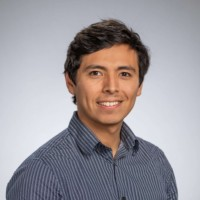
Speaker: Luis Ceferino, Ph.D.
Affiliation: Assistant Professor, Civil and Urban Engineering Department and the Center for Urban Science and Progress, New York University
ABSTRACT
Hospitals systems face three critical issues during post-earthquake emergency responses: (1) damage to hospitals and supporting infrastructure disrupts critical hospital functions; (2) damage to the city’ built environment causes injuries that require medical treatment; and (3) hospitals that are disrupted, evacuated or overflowing have to make on-the-fly decisions to transfer patients, without proper coordination. As a result, a compromised hospital system will decrease its “supply,” increase its “demand,” and reduce its coordination capacity. In this presentation, a framework that builds on recent Performance-based Earthquake Engineering (PBEE) developments and targets to support post-earthquake decision making in hospital systems to meet emergency response demands will be shown. Our approach consisted of constructing a holistic formulation for hospital system resilience that integrates new models for (1) assessing the post-earthquake reduction of hospital system functionality, (2) quantifying multiseverity earthquake casualties, and (3) optimizing hospital coordination strategies to effectively transfer patients and minimize waiting times within the hospital system. A case study in Lima, Peru, subjected to a magnitude 8.0 earthquake, identifies the neighborhoods that will most likely be underserved by healthcare services during the emergency. The case study demonstrates that high-coordination emergency plans can reduce patient waiting times by a factor of three, potentially preventing additional loss of life.
BIOGRAPHY
Luis Ceferino is an Assistant Professor in the Civil and Urban Engineering Department and the Center for Urban Science and Progress at New York University. Prof. Ceferino combines rigorous uncertainty quantification methods, structural modeling, and optimization techniques to elucidate the impact of extreme events such as earthquakes and hurricanes on urban systems (e.g., hospitals, power systems, transportation systems) and strategize solutions for urban resilience. He was a Postdoctoral Fellow at Princeton University, where he investigated modern power systems’ resilience to hurricanes. He completed his M.S. degree in Structural Engineering at the John A. Blume Earthquake Engineering Center at Stanford University in 2014 and his undergraduate studies in Civil Engineering at the Universidad Nacional de Ingeniería in Lima, Peru (B.S. in 2011). He also earned his Ph.D. in the Civil and Environmental Engineering Department at Stanford University. Ceferino has conducted earthquake risk analyses for the World Bank to support country-wide retrofitting policies in Central Asia. He is also the co-founder of a Peru-based startup, Yanapay, which developed a comprehensive and free platform for earthquake and tsunami risk visualization
Date/Time:
Date(s) - Feb 16, 2021
12:00 pm - 1:00 pm
Location:
Zoom link: https://ucla.zoom.us/j/96232116746?pwd=S2xOb3ZkeXdJeExKREFrVTBHNUJJdz09
Map Unavailable
